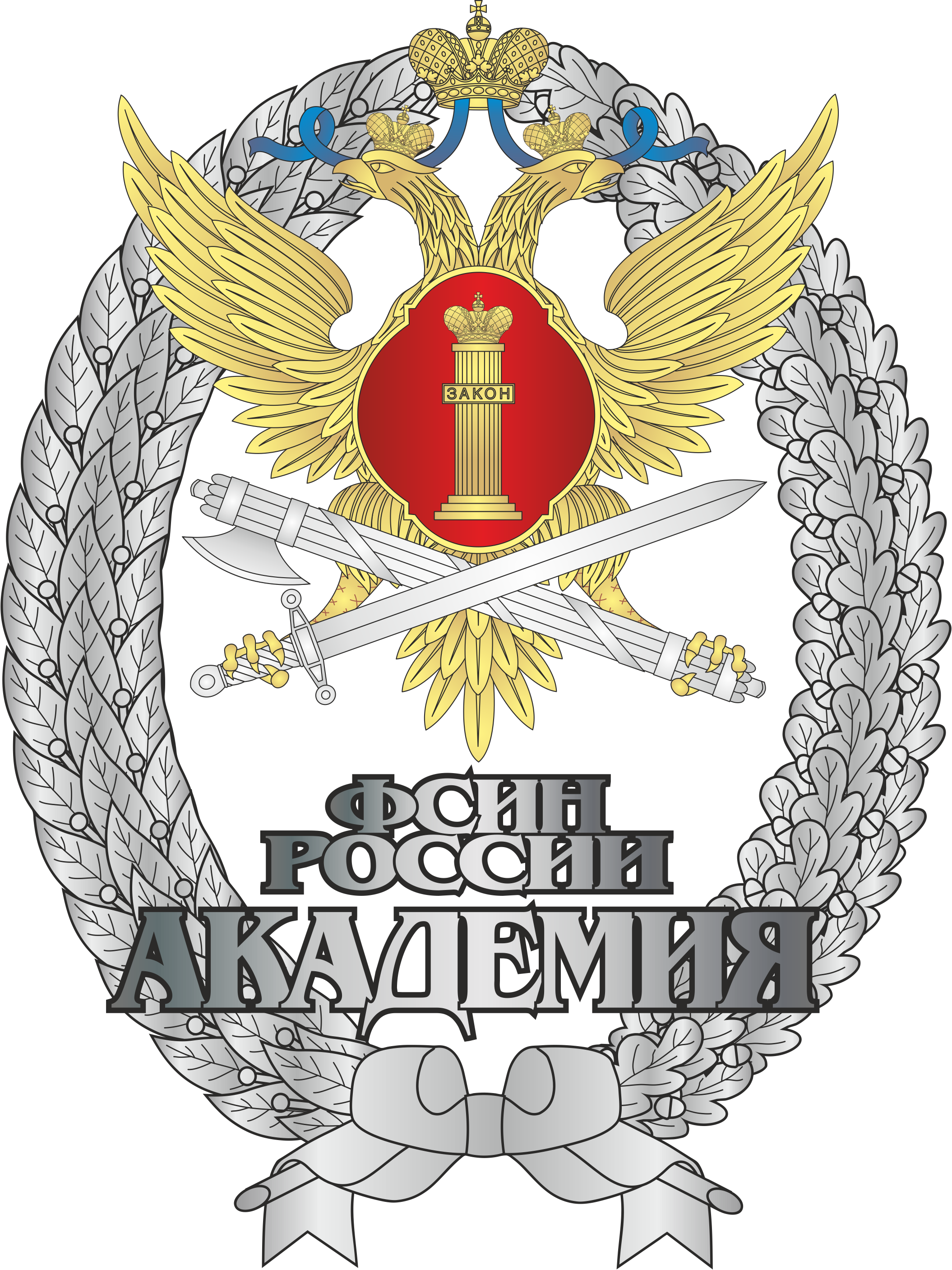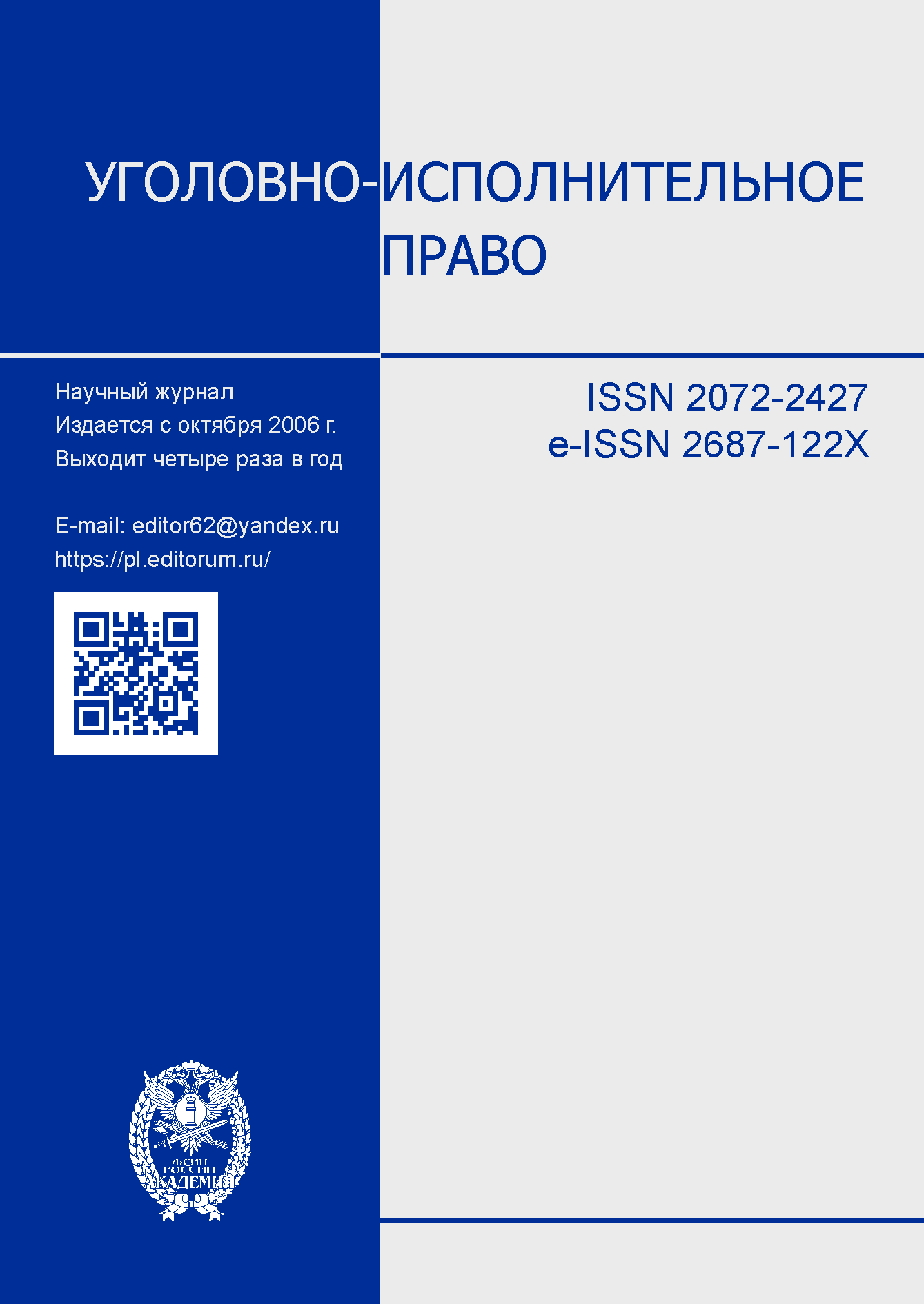UDC 343.13
UDC 343.847
The article examines the possibilities of the operational units of the penal system through the prism of using their potential in providing penitentiary probation. The potential costs of ignoring the preventive resource of operational units within the framework of correctional and preventive measures against convicts are analyzed. The main directions of penitentiary probation and ways of using operational investigative capabilities for their effective implementation are highlighted. Conclusions are drawn regarding the need to take into account operational search data in the process of implementing measures that make up penitentiary probation.
operational investigative activities, goals of penal legislation, convicts, educational work
1. Goryainov, K. K. 2013, ‘Operational investigative activities in the system of execution and serving of criminal sentences’, Society and law, iss. 4(46), pp. 154–157.
2. Isichenko, A. P. 2012, ‘Operational investigative activities in correctional institutions (commentary to Article 84 of the Criminal Code of the Russian Federation)’, Bulletin of the penal system, iss. 1(116), pp. 5–13.
3. Goryainov, K. K. & Ovchinsky, V. S. 2025, Theory of operational investigative activities: textbook, 5th edn, INFRA-M, Moscow.
4. Isarov, O. B. 2008, ‘The concept and essence of operational investigative crime prevention’, Scientific portal of the Ministry of Internal Affairs of Russia, iss. 1, pp. 73–78.
5. Temirkhanov, M. A. & Rudenko, A. S. 2024, ‘Some issues of penitentiary probation in the Russian Federation’, Bulletin of the Perm Institute of the FPS of Russia, iss. 1(52), pp. 90–96.
6. Kaluzhina, M. A. 2018, ‘On the issue of the essence of information support for operational investigative activities in the penal enforcement system’, Society and law, iss. 1(63), pp. 69–73.
7. Kutukov, S. A., Kazak, I. B. & Grushin, F. V. 2024, ‘Informational interaction of structural units of correctional institutions for law enforcement’, Agrarian and land law, iss. 5(233), pp. 300–303.
8. Ovchinsky, S. S. 2024, Operational-investigative information: monograph, A. S. Ovchinsky, V. S. Ovchinsky (eds), 2nd edn, INFRA-M, Moscow.
9. Panteleev, V. A. & Tishchenko, Yu. Y. 2024, ‘On the role of employees of operational units of correctional institutions in educational work with convicts’, Agrarian and land law, iss. 4(232), pp. 388–390.
10. Ponomarev, S. B. & Burt, A. A. 2025, ‘Prison deprivation syndrome (biological, social and philosophical aspects)’, Bulletin of the penal system, iss. 1(272), pp. 58–63.
11. Kostarev, D. F. 2019, ‘Prevention of the admission of prohibited items to correctional institutions of the penal system of the Russian Federation’, Bulletin of the Perm Institute of the FPS of Russia, iss. 2(33), pp. 41–47.
12. Simonovich, N. E. 2020, ‘Preparation of convicts for release from prison: psychological aspects’, Trends in the development of science and education, iss. 67-3, pp. 32–36.
13. Lubkov, E. A. & Milyaev, V. V. 2014, ‘Psychological contact in the work of an operational officer as an element of the system of operational investigative psychology for the effective solution of operational investigative tasks’, The world of legal science, iss. 12, pp. 71–75.
14. Goryainov, K. K. & Zaichenko, E. Y. 2014, ‘Directions of development of operational investigative activities in the penal system’, Bulletin of the Institute: crime, punishment, correction, iss. 1(25), pp. 22–24.











